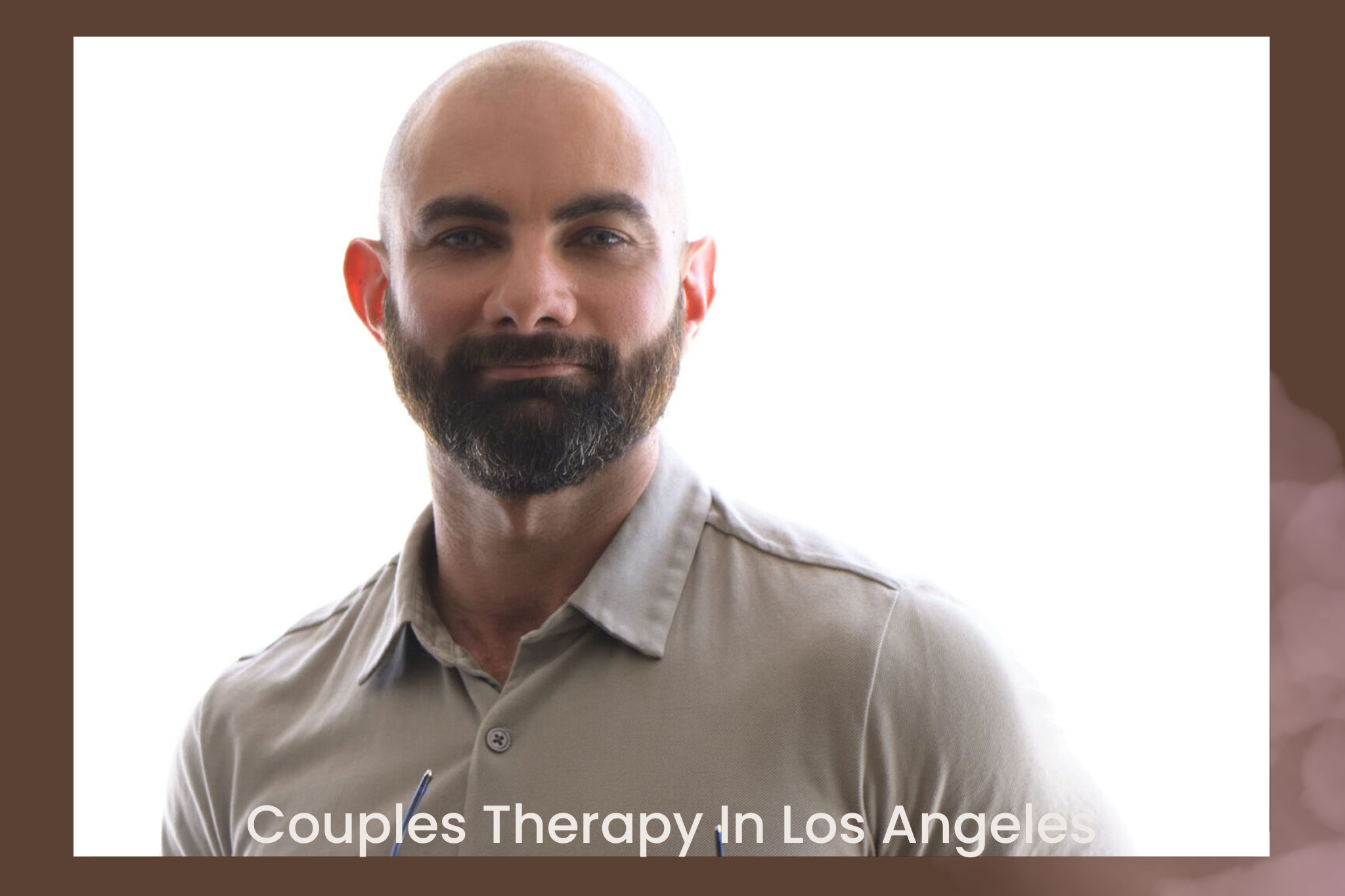Couples Therapy for Arguing in Los Angeles | Dr. Harel Papikian
When a Small Disagreement Becomes the Whole Evening: An LA Anecdote
It’s 7:40 p.m. in Los Feliz. Alex gets home late after inching along the 101. Sam has already eaten and left the sink full of pans from testing a new recipe. Alex says, “Wish you’d waited.” Sam hears, “You never think.” Ten minutes later, they’re debating who “always” and who “never,” dredging up last weekend, last month, and that trip that went sideways in Palm Springs. The night ends with two people scrolling on opposite ends of the couch, both feeling alone in the same room.
If this sounds familiar, you’re not broken—and you’re not the only LA couple living this loop. The combination of long commutes, high-pressure careers, and limited downtime makes even minor friction feel bigger. Couples therapy in LA with Dr. Harel Papikian helps you step out of that loop—so the next time something small happens, it stays small.
Why Arguments Become a Pattern (Especially in Los Angeles)
Arguments usually aren’t about dishes, traffic, or who texted whom back first. Those are surface triggers. Below the surface, three forces tend to drive repeat conflict:
- Stress spillover. LA life is intense—auditions, deadlines, shift work, and client dinners,. When stress doesn’t get named, it leaks into the relationship. You’re not “mad about the pan”; you’re overloaded.
- Hidden meanings. One partner hears “You’re late” as “You don’t care.” The other hears “You spent what?” as “You’re failing.” The topic becomes a proxy for deeper fears—about connection, respect, or security.
- Mismatched conflict styles. Many couples pair a “pursuer” (needs to resolve now) with a “distancer ” (needs space to calm down). Without a shared plan, one chases, one retreats, and both feel disconnected.
In a city where evenings are short and weekends fill up fast, fights can run the show simply because there isn’t a framework to do conflict differently. Therapy builds that framework.
When Arguing Starts to Harm the Relationship

Disagreements themselves aren’t the enemy—it’s the pattern around them that matters. A few signs that fights are leaving a deeper mark:
- Same fight, different day. You notice arguments circle back to the same dynamic, even if the topic changes. Nothing ever feels truly resolved.
- Fast escalation. Conversations heat up within minutes—raised voices, sarcasm, or shutting down replace calm discussion.
- Scorekeeping. Instead of teamwork, the focus shifts to “I did X, so you should do Y,” which erodes goodwill.
- Emotional hangover. The fight ends, but the tension lingers for days, creating distance.
- Avoidance. To “keep the peace,” you stop bringing things up, but resentment builds silently.
When this cycle repeats, it’s not about one partner being “the problem.” It’s a system issue. The good news: systems can be reworked.
How Couples Therapy Helps You Break the Cycle
Dr. Harel Papikian’s approach to couples therapy is practical and tailored to modern LA life. Here’s what it focuses on:
- Naming the pattern. Together, you’ll map out your recurring “fight sequence”—the triggers, the tone shifts, and the moments where connection gets lost.
- Slowing the moment. You’ll learn tools to pause escalation in real time, so small sparks don’t become fires.
- Saying the real thing. Instead of blame (“You never help”), you’ll practice expressing needs directly (“I need a plan so I don’t feel alone in this”).
- Repairing faster. You’ll build a step-by-step way to make amends and move forward without reopening old wounds.
- Protecting connection. With weekly rituals—like shared check-ins or couple time—you’ll strengthen closeness so minor issues don’t spiral.
The ARM Method: Awareness • Release • Mastery
Dr. Harel integrates his ARM Method across couples work. It’s clear, doable, and it sticks.
A — Awareness
What it is: A precise look at the current landscape—how your histories, nervous systems, and daily pressures shape the way you argue.
What you’ll do:
- Track triggers, body signals, and the first 120 seconds where things usually flip from calm to heated.
- Identify the “baggage” you each bring—past criticism, financial fear, family rules about anger.
- Translate the surface complaints into underlying needs (reliability, appreciation, autonomy, closeness).
LA snapshot: A Glendale couple argued every Sunday night. Awareness work revealed it wasn’t about “plans.” One partner’s stomach dropped every time the calendar came out because Monday meant a high-stakes OR schedule; the other feared being sidelined all week. Once they named that, they could plan Sunday rituals that preserved connection and reduced Monday dread.
R — Release
What it is: Letting go of the old stuff—resentments, negative beliefs (“I’m never enough,” “You’ll always leave”), and body-level tension that keeps arguments sticky.
How it happens:
- CBT to challenge thought loops that heat conflict.
- Mindfulness to interrupt autopilot reactions and ground the body.
- NLP reframing to change unhelpful narratives about your partner and yourself.
- Hypnotherapy (when appropriate) to loosen deep anchors tied to past criticism, betrayal, or family conflict.
LA snapshot: A West Hollywood pair couldn’t discuss money without a blow-up. Release work shifted a core belief that made one partner feel unsafe in the relationship—“ I don’t have enough to offer ”—into “I am enough” The topic stopped feeling like an alarm since now both partners could talk about finances without feeling unsafe.
M — Mastery
What it is: Skills and systems that turn insight into a new normal.
What you’ll practice:
- Communications tools such as PMR Framework (Pre-Talk, Message, Response) to discuss emotionally charged topics effectively.
- Reconnection strategies to dramatically shorten periods of tension in the relationship.
- Repair protocols to use friction or conflict to deepen mutual understanding and empathy.
- Emotional intimacy skill to nurture love and connection in the relationship.
- Rituals of connection that fit your life (coffee on the patio before the 405, a Tuesday night walk on the Strand, phones down after 9).
LA snapshot: An Echo Park duo with creative schedules used Mastery to set a “night-before” huddle, a 60-second apology template, and a Friday “win of the week.” Fights shortened. Wins grew.
What Sessions with Dr. Harel Look Like

Session 1: Map and Plan
You’ll outline core stressors, the typical arc of a fight, and the outcomes you want (fewer blow-ups, better repair, more intimacy). You’ll leave with one immediate de-escalation tool.
Weeks 2–4: Awareness in Action
You’ll track triggers (yes, outside stress counts), decode meaning, and practice saying the real need. Many couples notice arguments get shorter here.
Weeks 5–9 : Release Work
You’ll dismantle lingering resentments and limiting beliefs that keep the same argument alive. If trauma or past betrayal is part of the picture, this is addressed carefully and directly.
Weeks 10–15: Mastery and Maintenance
You’ll install your communication playbook: cool-downs, repair steps, weekly alignment, and rituals that fit your LA life. The goal isn’t perfection; it’s a durable system you both trust.
Scheduling is flexible, with telehealth options for travel weeks, shoots, rotations, and late calls.
Is Couples Therapy Right for Us?
Consider starting if any of these resonate:
- We argue often, or we avoid hard topics because arguments blow up.
- We recover slowly; tension lingers for days.
- We feel like teammates at work and strangers at home.
- We want a plan for conflict—not just “try harder.”
- We’re building a life here and want our relationship to be the steady part.
You don’t need to wait for a crisis. Many couples come in to tune up a good relationship before patterns harden.
Why Couples Across Los Angeles Choose Dr. Harel
A clear method from day one.
Dr. Harel’s ARM framework (Awareness, Release , and Mastery) gives couples a structured path forward. Instead of open-ended conversations that feel circular, you leave each session with clarity on what’s happening, why it happens, and how to change the pattern.
Tools that fit LA life.
Couples in Los Angeles juggle demanding schedules—whether it’s late-night shoots, medical rotations, long commutes, or working across time zones. The strategies Dr. Harel teaches are designed to be practical and sustainable, so they actually work in real daily routines.
Depth paired with practicality.
Arguments are often tied to deeper wounds, but therapy isn’t just about revisiting the past. With Dr. Harel, couples learn to process unresolved pain while also installing tools they can use immediately—like how to de-escalate mid-argument or reset after conflict.
Experience with diverse couples.
Los Angeles brings together people from different cultures, professions, and family structures. Dr. Harel has worked with cross-cultural marriages, blended families, entrepreneurs, creatives, and healthcare workers—helping each couple navigate the unique dynamics of their relationship.
FAQ
1. How fast will we see change?
Many couples feel less escalation and more control within a few sessions. Mastery builds over weeks as new habits replace old reactions.
2. What if one of us is skeptical?
That’s common. Sessions are structured so even a reluctant partner can see progress quickly—shorter fights, clearer agreements, fewer repeats.
3. Will therapy make us rehash everything?
Only what serves repair and progress. The focus is on understanding patterns and building skills, not staying stuck in the past.
4. Do you offer telehealth?
Yes. Virtual sessions are available across California—useful for travel weeks, late shoots, or heavy rotations.
5. Is this just for married couples?
No. Dating, engaged, married, co-parenting—if you share decisions and a life, the tools apply.
Your Next Step
Arguments don’t have to run your home—or your evenings. With the right map and the right tools, two good people can build a calmer, closer, more resilient partnership.
If you’re ready to shift from reacting to relating, schedule a couples session with Dr. Harel Papikian in Los Angeles. If you’d like to review how much couples therapy costs in Los Angeles, you can explore our pricing guide before booking.

Leave a Reply